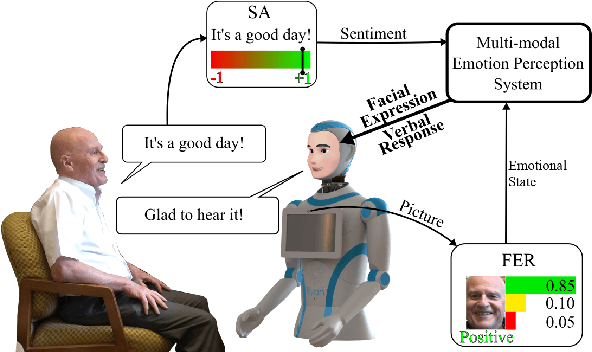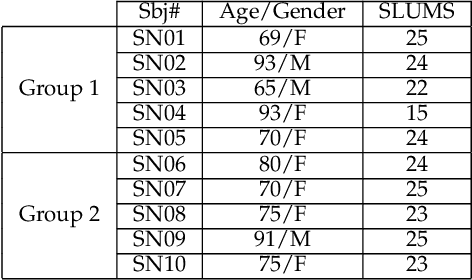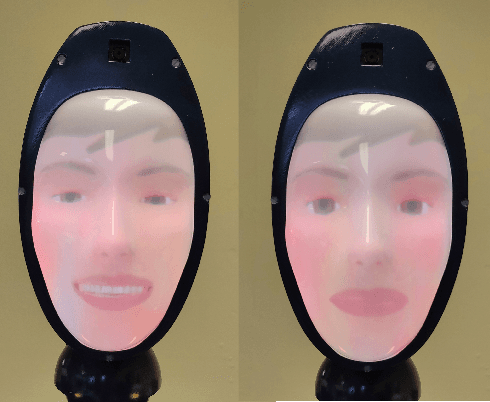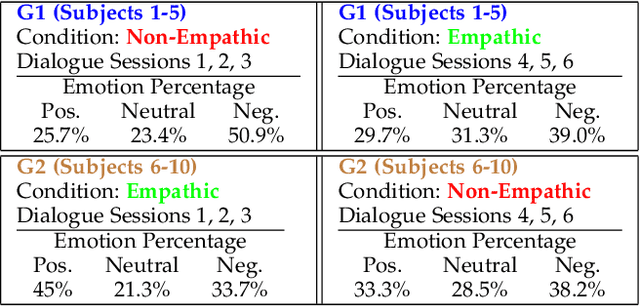Jarid Siewierski
Artificial Emotional Intelligence in Socially Assistive Robots for Older Adults: A Pilot Study
Jan 26, 2022



Abstract:This paper presents our recent research on integrating artificial emotional intelligence in a social robot (Ryan) and studies the robot's effectiveness in engaging older adults. Ryan is a socially assistive robot designed to provide companionship for older adults with depression and dementia through conversation. We used two versions of Ryan for our study, empathic and non-empathic. The empathic Ryan utilizes a multimodal emotion recognition algorithm and a multimodal emotion expression system. Using different input modalities for emotion, i.e. facial expression and speech sentiment, the empathic Ryan detects users' emotional state and utilizes an affective dialogue manager to generate a response. On the other hand, the non-empathic Ryan lacks facial expression and uses scripted dialogues that do not factor in the users' emotional state. We studied these two versions of Ryan with 10 older adults living in a senior care facility. The statistically significant improvement in the users' reported face-scale mood measurement indicates an overall positive effect from the interaction with both the empathic and non-empathic versions of Ryan. However, the number of spoken words measurement and the exit survey analysis suggest that the users perceive the empathic Ryan as more engaging and likable.
 Add to Chrome
Add to Chrome Add to Firefox
Add to Firefox Add to Edge
Add to Edge